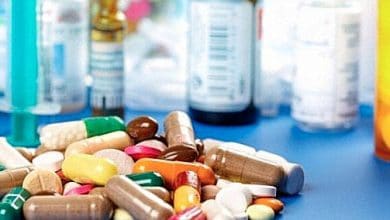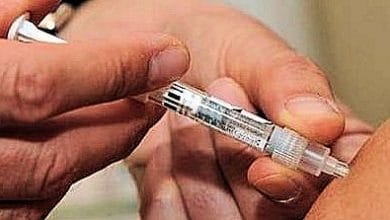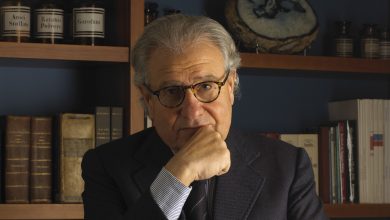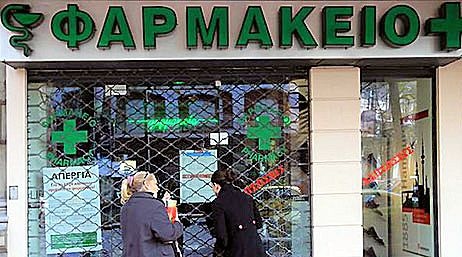
 Rome, June 30. (AdnKronos Salute) – The hoarding of medicines reported in recent days by Greek pharmacies could prove useful. In the event of 'Grexit', "the worst case scenario", even the supply of medicines to Greece could be in danger "and this would create a risk for public health". This is testified by a worried letter written by the director general of Efpia (an association that brings together European drug manufacturers), Richard Bergstrom, to the European Health Commissioner Vytenis Andriukaitis. The association does not hide its "concerns" about what could happen to the Greek pharmaceutical sector in the event that Greece does not reach an agreement with its creditors.
Rome, June 30. (AdnKronos Salute) – The hoarding of medicines reported in recent days by Greek pharmacies could prove useful. In the event of 'Grexit', "the worst case scenario", even the supply of medicines to Greece could be in danger "and this would create a risk for public health". This is testified by a worried letter written by the director general of Efpia (an association that brings together European drug manufacturers), Richard Bergstrom, to the European Health Commissioner Vytenis Andriukaitis. The association does not hide its "concerns" about what could happen to the Greek pharmaceutical sector in the event that Greece does not reach an agreement with its creditors.
“In the worst-case scenario of Grexit – we read – we believe that the integrity of the supply chain of medicines could be in danger, which would create a risk to public health. We therefore believe that it is prudent and responsible to ensure a dialogue between the Commission and the pharmaceutical industries on concrete contingency plans".  There are two categories of pitfalls that could compromise the supply of medicines, again in the event of Grexit. The former are linked to the technical collapse of the transaction support infrastructures, to the uncertainty about the validity of the contracts and therefore to the doubts about the possibilities of payment, also linked to the fact that the supply chain of Greek medicines is "much more fragmented than in other EU countries".
There are two categories of pitfalls that could compromise the supply of medicines, again in the event of Grexit. The former are linked to the technical collapse of the transaction support infrastructures, to the uncertainty about the validity of the contracts and therefore to the doubts about the possibilities of payment, also linked to the fact that the supply chain of Greek medicines is "much more fragmented than in other EU countries".
But drug manufacturers also point the finger at a possible increase in parallel exports, "which could cause shortages" of medicines. A normal phenomenon, that of parallel exports, which could, however, multiply with the exit from the euro and compromise the availability of medicines in the country. Companies underline the need for dialogue, for targeted and agreed plans to better manage the situation.
"In addition to the imperative need to ensure access to medicines for patients in Greece, it is important that the economic consequences on the legitimate commercial interests of pharmaceutical companies are minimized". Also at stake is the question of the future price of medicines in a non-euro Greece and adaptation to the new currency. In short, for Efpia there are many problems on the table, and a meeting is needed to find solutions.
Queues at the pharmacy, rationing. Greece, evidence of a war economy
In Athens, residents have plunged back into hoarding for the first time in decades
Of Federico Fubini, our correspondent in Athens – June 30, 2015 – CORRIERE DELLA SERA
 From outside the pharmacy come screams and the smell of grilled pork chops. It is eight o'clock in the evening and Syntagma Square is filling up meter by meter with the first demonstration of this referendum campaign, the one organized by the «no» front. In twenty-four hours it will be the turn of the "yes". But tonight the placards on hundreds of shoulders ask for a "stop to the old and new memorandum", and the demonstrators are everywhere, more and more crowded on the pavement of Syntagma.
From outside the pharmacy come screams and the smell of grilled pork chops. It is eight o'clock in the evening and Syntagma Square is filling up meter by meter with the first demonstration of this referendum campaign, the one organized by the «no» front. In twenty-four hours it will be the turn of the "yes". But tonight the placards on hundreds of shoulders ask for a "stop to the old and new memorandum", and the demonstrators are everywhere, more and more crowded on the pavement of Syntagma.
Inside the door of the Venice pharmacy, a botox-wearing esthetician slips away with a bag in hand. She just got off work and stopped by to buy an extra box of high blood pressure medicine for her mother. It was not needed, recognizes the 49-year-old Venice (who asks for the surname to be omitted), but she decided she would buy some reserves of drugs as soon as she heard that there would be a referendum.
She is not alone in Athens. Papharm, the largest private medicine wholesaler in the Greek capital, reported an increase in demand for supplies from pharmacies by as much as 50%. At that point the company behaved a bit like the Bank of Greece, when two days ago it recommended the closure of banks and capital controls: Papharm too imposed limits on the distribution of medicines to retail establishments, so as not to find themselves with empty warehouses. His messengers worked three or four hours of overtime carrying sacks filled with boxes of medicines imported from Germany, Switzerland or France to hundreds of pharmacies. For powdered milk for babies alone, Papharm yesterday recorded a doubling of requests and distributed 1,500 more packs.
In this, Athens has changed more in a few hours than during five years of recession. Residents of a European capital full of cafes, museums, modern and clean subways, and university graduates have plunged back into hoarding for the first time in decades. Filling the house with food, petrol or medicines was a wartime habit, which the elderly remember having dusted off during the colonels' coup in 1967. It was a memory erased from the heads of the younger ones but yesterday it suddenly resurfaced , irrational and overbearing. "Many have bought double or triple the usual quantities of cardiovascular, antibiotics, anti-inflammatories," notes Loukas Arnaoutakis, owner of a pharmacy in via Solone 92, not far from piazza Omonia. During the day, the situation reached such a point that the Hellenic Association of Pharmaceutical Companies had to issue a statement: "There are no shortages of medicines".
Just as in Italy radios dedicated to every single football team are listened to, these days in Athens anyone in taxis or bars follows the broadcasters who obsessively talk about the referendum, Syriza or the premier. Yesterday the Athenians heard that Alexis Tsipras had written to his European colleagues to ask for an extension of the program - rejected - and this only heightened the sense of uncertainty. It doesn't help that the race for medicines presents an additional complication: especially the smaller pharmacies have been asked by wholesalers for the balance of medicines three times a day and only in cash. Importers of products from the German Bayer or the Swiss Novartis no longer deliver by bank transfer or electronic payment. Their refusal is not due to bank constraints, but to their own fears: since the announcement of the referendum has put Greece's future in the euro in doubt, drug wholesalers have feared that foreign manufacturers will ask them to pay off their orders cash only. So in turn they themselves only require cash from smaller pharmacies, which in cascade often require only cash from customers. Maria, a 34-year-old shopkeeper in Odos Benaki, has become adamant about this. In an economy where no more than 60 euros can be withdrawn a day, everything depends on cash. The diaphragm between the Western standard of normalcy and a humanitarian crisis has never been thinner.
However, this is not enough to make Venice decide, the aesthetic operator rushing to stock up on the pharmacy in Piazza Syntagma. With 1,200 euros a month, he earns more than many others, he admits. “But in the referendum I'm not sure I'll opt for the 'yes'. I think everyone is lying to us."
Greek companies, no supply problems for now
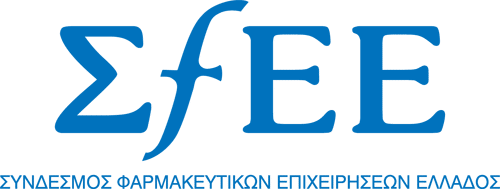 Faced with a 1.05 billion euro credit due to hospital pharmaceutical spending, and recent reports of hoarding of medicines in pharmacies, the producers of the Hellenic Association of Pharmaceutical Companies (Sfee) - the Greek 'Farmindustria' – underline that for now "there is no problem in the supply chain" of medicines in the country. "The health problem should be left out of the political fever of the next few days", Sfee told Pharmakronos, stigmatizing "the cynicism of those who find opportunities to gain from the long agony of Greek citizens". Sfee clearly states that "it will not be part of the logic of division". The numbers cited by the association in a note in early June show that Greece currently has the lowest public pharmaceutical expenditure per capita in the EU - 179 euros, against a European average of 320 euros - equal to 2 billion euros in the last two years. For the sustainability of the healthcare system, this sum "should rise to 2.2-2.3 billion euros" a year.
Faced with a 1.05 billion euro credit due to hospital pharmaceutical spending, and recent reports of hoarding of medicines in pharmacies, the producers of the Hellenic Association of Pharmaceutical Companies (Sfee) - the Greek 'Farmindustria' – underline that for now "there is no problem in the supply chain" of medicines in the country. "The health problem should be left out of the political fever of the next few days", Sfee told Pharmakronos, stigmatizing "the cynicism of those who find opportunities to gain from the long agony of Greek citizens". Sfee clearly states that "it will not be part of the logic of division". The numbers cited by the association in a note in early June show that Greece currently has the lowest public pharmaceutical expenditure per capita in the EU - 179 euros, against a European average of 320 euros - equal to 2 billion euros in the last two years. For the sustainability of the healthcare system, this sum "should rise to 2.2-2.3 billion euros" a year.

